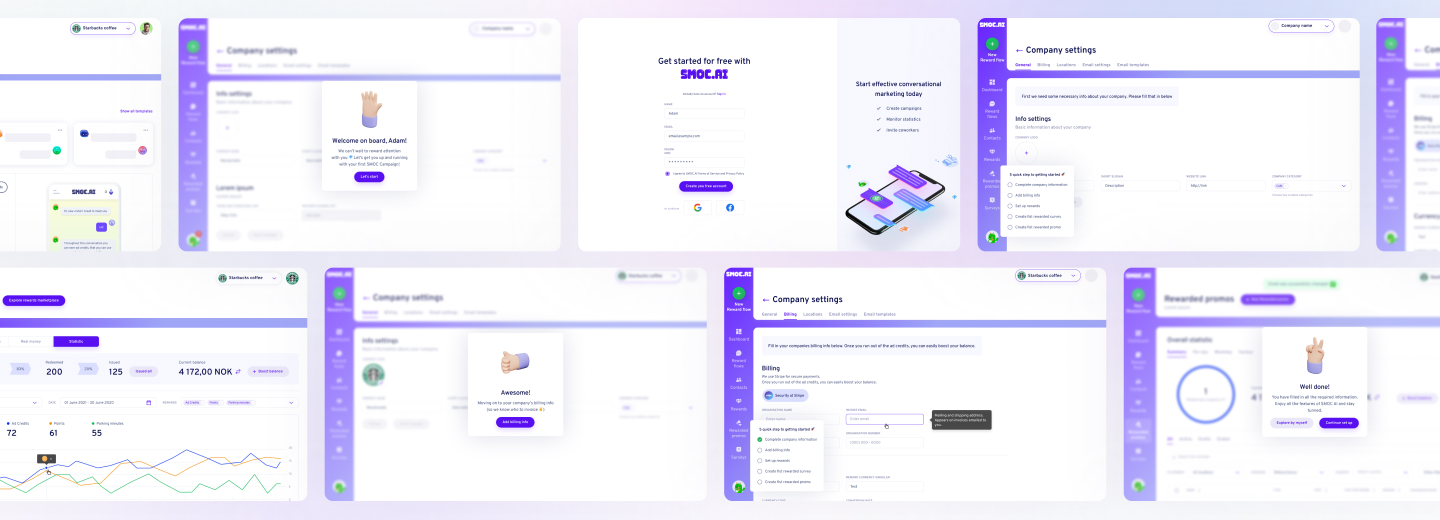According to the Harvard Business Review, a staggering 70% to 90% acquisition failure rate can be attributed to companies’ failure to perform proper due diligence. This oversight has the potential to seriously damage a startup’s foundation and expose it to serious risks.
Securing venture capital investment often hinges on a crucial milestone: undertaking elaborate due diligence of start-up ventures. It goes beyond preparing a good investment story or preparing financial and corporate governance numbers. It entails a critical analysis of the so-called ‘growth strategy’ and its viability in the context of your business.
In this article, we delve into the technical due diligence checklist, the significance of utilizing a virtual data room for this process, and why due diligence can’t be overemphasized when it comes to enabling startups to grow.
what’s in the article
- What Is Technology Due Diligence?
- Why Is Technology Due Diligence Crucial for Startups?
- Areas to Evaluate in Technology Due Diligence Software
- Steps to Conduct a Technology Due Diligence Assessment
- Checklist for Technology Due Diligence
- Conclusion
What Is Technology Due Diligence?
Technical due diligence is a detailed assessment of the nature and quality of the technical environment in an organization. The most important components being assessed are software and hardware, data security, scalability, and alignment with business objectives. It is usually done in mergers and acquisitions or during investment decisions to see all the pitfalls and inefficiencies of the tech stack.
Besides, it leads to a better understanding of technology strengths, weaknesses, and opportunities for improvements, allowing strategic business and integration decisions to be soundly based.
Why Is Technology Due Diligence Crucial for Startups?
In startups, technology due diligence is a crucial process in establishing trust with investors and partners. It helps to define that the technological fundament of the startup is rather firm, confidently developed, and secure, which is important for a long-term perspective. Key reasons why IT due diligence is crucial for startups include:
- Risk Identification and Mitigation: Digs up potential problems in an organization that may include system weakness, compliance concerns, or security risks to be solved.
- Investor Confidence: Proves to investors that the technological foundation of a startup is reliable and ready to contribute to expansion therefore building trust.
- Competitive Advantage: Emphasizes the startup’s ability to create a competitive advantage and its willingness to enter the market zone.
- Scalability Assessment: Assess if current technology can be scaled to meet future upgrades and changing business environments.
- Compliance Assurance: Ensures compliance to set legal requirements and minimizes chances of legal or operational repercussions.
- Efficient Use of Resources: It documents gaps, overlaps, or suboptimal processes in the technology value chain and enhances its functioning.
When technology due diligence takes precedence, startups can achieve investments and establish the necessary framework for industry sustainability.

Looking to Build an MVP without worries about strategy planning?
EVNE Developers is a dedicated software development team with a product mindset.
We’ll be happy to help you turn your idea into life and successfully monetize it.
Areas to Evaluate in Technology Due Diligence Software
Software evaluation is always important when performing a software due diligence checklist. In today’s world, software is the core of many companies making it crucial to analyze the position and evaluate the threats, opportunities, and areas of growth. Here are the technology due diligence questions to evaluate:
Software Architecture
The software architecture defines the conceptual structure of your technological environment. It helps assess that the design of the implemented system enhances scalability, reliability, and maintainability. Key considerations include:
- Is it sufficiently dynamic and scalable enough to adapt to future needs?
- Is it compatible with other tools and applications?
- Are there any bottlenecks or inefficiencies in the design?
A well-architected design is the cornerstone of sustainable innovation and efficiency over the long term.
Performance of the Tech Stack
The functionality of the tech stack defines the capability of the software to support users’ and processes’ needs. Key performance indicators to analyze include:
- The synthesized results provide information about speed and responsiveness under different levels of loading.
- This can range from compatibility of tools, framework, and platform, and other related issues.
- Regularity and constancy of system breakdowns or outages.
Ensure that not only users prefer and have a better experience with the product, but also all aspects of the business run efficiently.
Security Protocols and Data Privacy Measures
In today’s digital landscape, robust security and data privacy are non-negotiable. Evaluating this area involves:
- Discovering weaknesses in technical due diligence software and infrastructure.
- Evaluating encryption methods and access control policies.
- Compliance with data protection regulations like the GDPR or HIPAA.
Robust safety controls safeguard information and improve stakeholder trust and client loyalty.
Compliance with Industry Standards
It must be noted that compliance is quite crucial to meet legal, ethical, and operational standards. Key compliance aspects include:
- Compliance with certain standards and regulations introduced in the field of the business.
- Aligning with coding standards, accessibility guidelines, or security frameworks.
- Continuing education regarding new certifications that reflect technical capability.
Compliance not only involves minimizing penalties but also creating trust with clients and partners in the business.

Proving the Concept for FinTech Startup with a Smart Algorithm for Detecting Subscriptions

Scaling from Prototype into a User-Friendly and Conversational Marketing Platform
Steps to Conduct a Technology Due Diligence Assessment
Assembling a Due Diligence Team
Building the right team is the key to a successful tech due diligence checklist of the assessment process. Gather together a team of experts who specialize in software engineering, IT systems, information security, and legal requirements. Make sure there are people on the team who can assess the technical environment, but also evaluate how well the technology fits your business.
Interviewing the Technical Team
Spend lots of time in discussions on the critical success factors with the dedicated company technical team. Such interviews are the opportunity to reveal how the team uses the development process, to find out what kind of knowledge may be locked, and to realize the potential of the team’s skills for scaling. Stop asking basic things—ask them about past struggles, present technical debt, and their ideas on future solutions.
Analyzing Tech Stack
Dive deep into the technology stack to evaluate its strengths, weaknesses, and overall alignment with industry standards. It means looking for such components as outdated elements that have become a security threat or incompatible products. However, analysis is much more valuable because this indicates problems or pitfalls as well as shows opportunities for enhancement.
Create the Report
The end product is your action guide based on research findings. It should contain main conclusions, demonstrate threats, and present a plan of action in the case of some problems. Conduct an assessment of the technology, the team, and its implications on the strategic map. In terms of format, it is advisable to write your findings in simple language, which will be understandable by both technical and non-technical people. An advisable report builds your findings into relevant solutions.

Need Checking What Your Product Market is Able to Offer?
EVNE Developers is a dedicated software development team with a product mindset.
We’ll be happy to help you turn your idea into life and successfully monetize it.
Checklist for Technology Due Diligence
Evaluate Team Expertise
Having a technical team is crucial for supporting an organizational technology infrastructure. Assess their ability to operate current systems, and their potential for dealing with future difficulties. Look for proficiency in key technologies, problem-solving abilities, and adaptability to new tools or processes. A flexible team is an essential resource to have.
Key Points:
- Assess current skills and experience.
- Check readiness for scaling and future demands.
- Evaluate adaptability to evolving technologies.
Check How Systems Work Together
Knowledge of how all these work in harmony is essential for optimal utilization of the systems and tools in use. It is also important to assess the interoperability between the platforms, and tools to discover possible bottlenecks or problems of compatibility. Make sure that the systems are relatively interrelated to provide the best support for the IT due diligence process by streamlining and reducing loops or gaps between them.
Key Points:
- Review system and platform integration.
- Identify and address bottlenecks or compatibility issues.
- Ensure smooth workflows with minimal disruptions.
Look at Backup
A reliable backup strategy makes it possible to provide efficient protection against information loss and reduce interruptions in time. Analyze how data is being protected, and how data can be restored. Ensure disaster recovery plans align with industry standards and provide adequate coverage.
Key Points:
- Investigate backup reliability and frequency.
- Check recovery mechanisms for effectiveness.
- Review disaster recovery plans and protocols.
Spot Areas of Technical Improvement
Indeed, all the systems can be optimized even the best ones. Look for outdated components, technical debt, or inefficient processes that could be enhanced. Emphasize cases when the new instruments have to be implemented, or the existing working processes have to be optimized to have better efficiency and compatibility.
Key Points:
- Identify outdated components and technical debt.
- Explore adopting efficient tools or technologies.
- Highlight process optimization opportunities.
Conclusion
In preparing a technological audit assessment, it is very important to understand the overall readiness of the company for technological advancement. Adhering to a set of guidelines, it is possible to find the most essential issues, avoid possible pitfalls, and find possible ways of development.
Key Takeaways:
- Team expertise matters: An effective and dynamic technical team is the key to any business that involves technical support. Evaluate their competencies, their capacity to solve problems, and their preparedness to perform the next-level tasks.
- System integration is critical: Make sure all of your systems and platforms are well integrated— do not allow one platform to be a bottleneck or create issues. Interoperability is a key to effective execution and organizational scalability.
- Don’t forget about backup and recovery plans: Having a solid backup system is critical for adverse events, so the company can continue to run while recovering its data.
- Opportunities for improvement exist everywhere: It is important to search for inefficiencies. Improving these vectors increases productivity and contributes to the formation of new areas for the development of the startup.
Dealing with these aspects, your due diligence will not only allow you to evaluate the current (or the last) status of a startup regarding its technical indicators but also make relevant decisions considering your strategic objectives. A detailed evaluation today sets the stage for sustainable success tomorrow.
The best digital marketing strategy for a startup can not be formed at once as a single solution. It is a strategic mix of tools and techniques that should be adapted on demand and based on analytical data. To resonate with diverse customer segments you should produce personalized content, leverage advanced analytics, and utilise machine learning algorithms.

About author
Roman Bondarenko is the CEO of EVNE Developers. He is an expert in software development and technological entrepreneurship and has 10+years of experience in digital transformation consulting in Healthcare, FinTech, Supply Chain and Logistics.
Author | CEO EVNE Developers


















